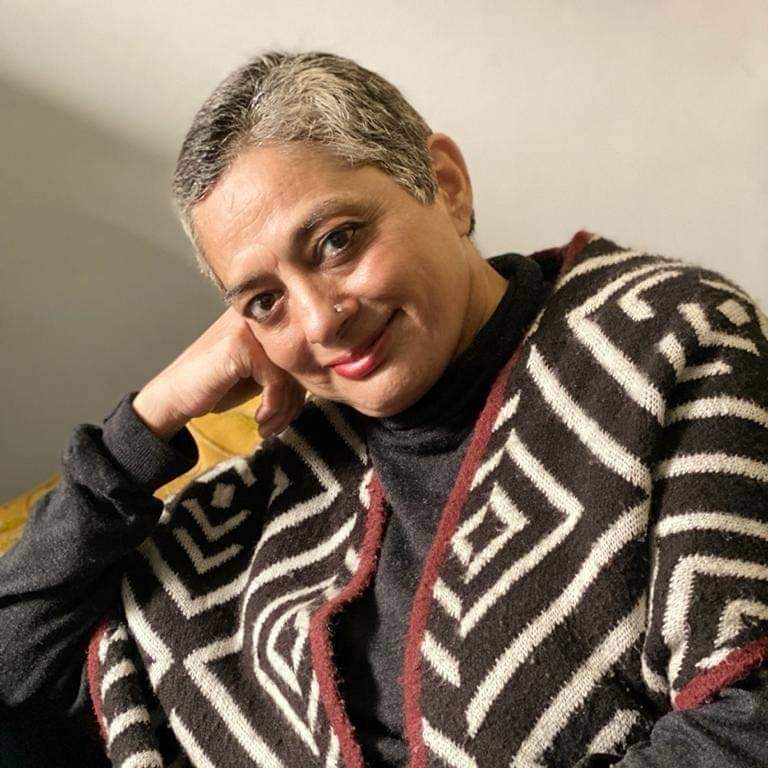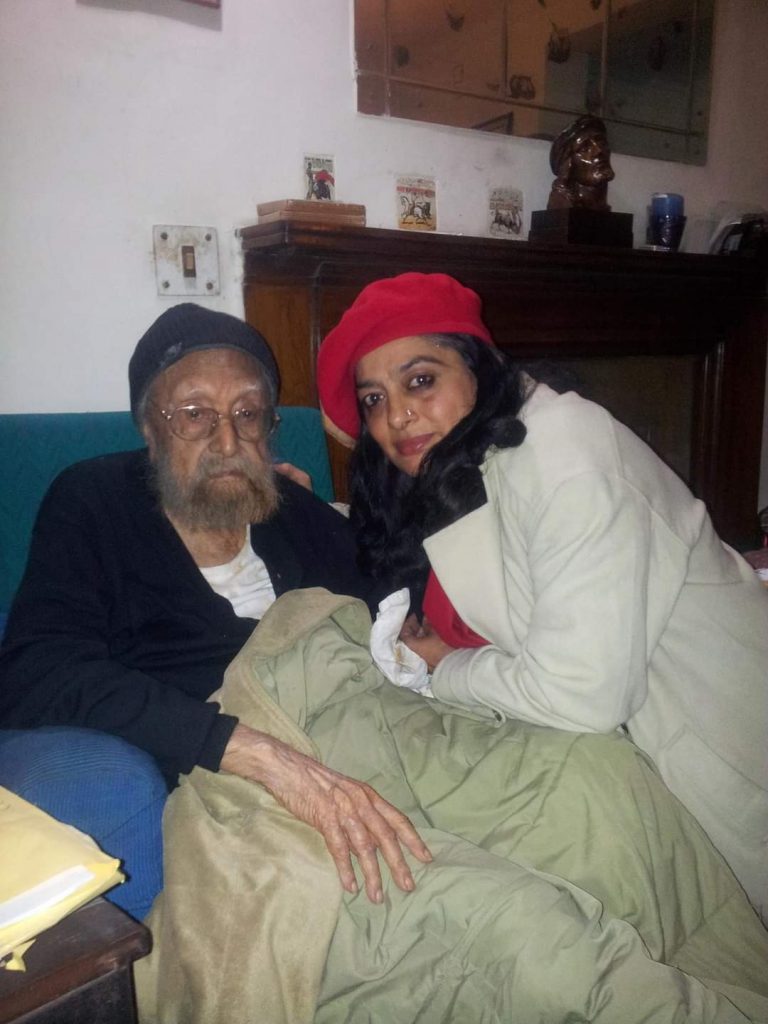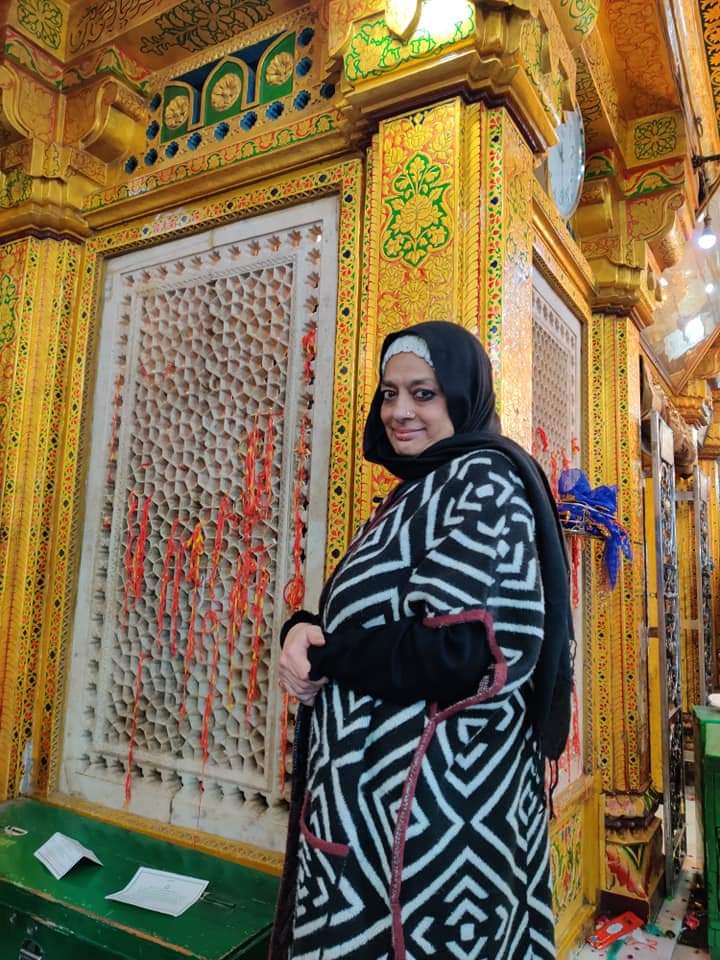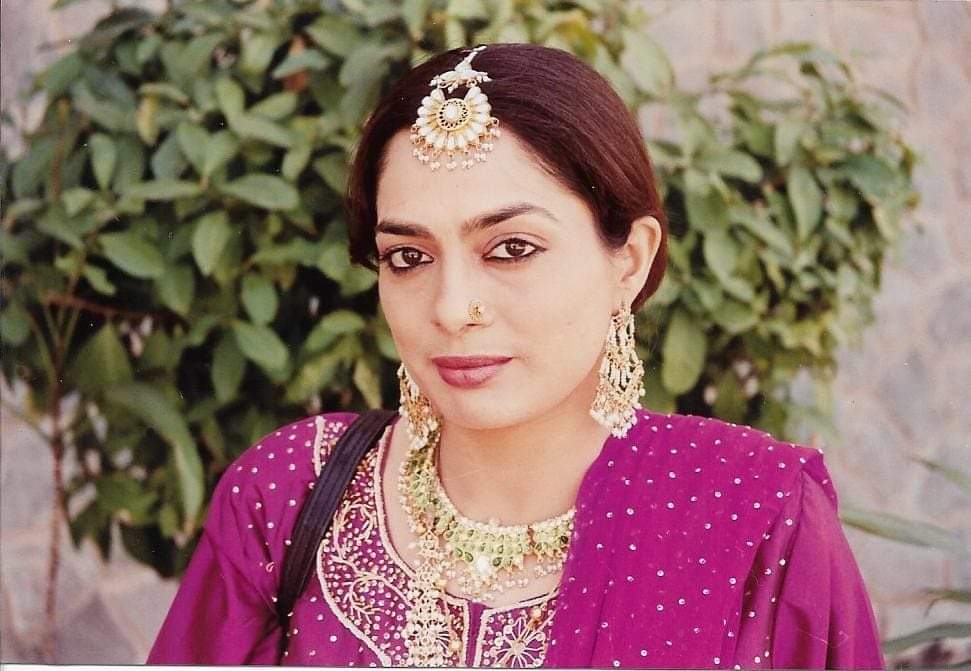“Delhi’s shama has dimmed,” tributes pour in on Sadia Dehlvi’s death

By Musheera Ashraf, TwoCircles.net
New Delhi: Sadia Dehlvi’s love for Delhi reflects in her name. “I am a true dilli-wali. I live and breathe this city and relish every moment of it. I cannot imagine living anywhere else and I hope to die here,” she said in one of her interviews with the Friday Times.
Born in Delhi in 1957, this Delhi based activist, writer and a columnist was frequently published in Frontline and Urdu, Hindi and English newspapers and magazines.
Sadia, 63, breathed her last on 5 August at her home in Nizamuddin East (which she used to call her refuge) after a long battle with cancer. She had been admitted to the hospital for a few days, and on August 1, her son Arman Ali Dehlvi posted a “cancer treatment fundraiser request” for his mother on social media.
Sadia’s spitfire writings on women and minority issues won her the Best Journalist’s Award in 1989.

In April 2009 Dehlvi published a book on Sufism entitled 'Sufism: The Heart of Islam.' Her second book, 'The Sufi Courtyard: Dargahs of Delhi,' detailed Delhi's Sufi history.
She edited Bano, an Urdu women’s journal for the Shama Group, which published Shama, an Urdu literary and film monthly. It was eventually closed down in 1987.
Dehlvi was a close friend of the late author Khushwant Singh. Singh’s book 'Not a Nice Man to Know' was dedicated to her. He wrote, “To Sadia Dehlvi, who gave me more affection and notoriety than I deserve.”
Singh’s other book, 'Men and Women in my Life' includes an entire chapter on her and the cover has her photo.
In 1998, Dehlvi produced a television show, Not a Nice Man to Know with Khushwant Singh interviewing women from various fields.

Once during an interview with Mayank Austen Soofi, when asked about how Delhi treats Muslims Dehliv said, “Life for the Indian Muslims is not easy due to many multi-layered problems. It is hard for Muslims to rent places in most parts of the city. Their language, culture and cuisine are on the verge of death. It is almost extinct. I’m actively involved in preserving the rich heritage. But it's difficult. Delhi has been taken over by the boisterous and aggressive Punjabi migrants and that quintessential Delhi culture is now on the verge of extinction. You hardly ever come across a true Dilliwala in this New Delhi anymore. Those endangered species are now confined to the old city.”
Dehlvi won acclaim for her television series ‘Amma and Family’ starring the veteran actress Zohra Sehgal. Dehlvi co-produced and scripted the series and also played one of the main roles. In ‘Amma and Family,’ Dehlvi highlights Delhi’s unique dialect and demolishes television stereotypes of paan-chewing, gharara-clad, adaab-spouting Indian Muslims. Veteran actor Zohra Sehgal, who played Amma, has said that she greatly enjoyed the role and the script.
Dehlvi also founded Al Kauser, a restaurant in Chanakyapuri, with her mother in 1979. Under the name, “Bazm-e-Urdu” Dehlvi helped many people who wanted to learn Urdu.
An article by Raza Rumi, a Pakistan based writer describes her as a devout Muslim who prays five times a day and devotes half an hour each morning to a recitation from the Quran. This is followed by a yoga routine because she explains, “I am then equipped emotionally and physically to battle the daily stress of city life.” She is also Diwani of the 22 Khawajas who “protect and bless my city.”
“On Thursday evenings this celebrity – who appears regularly on Pg 3 of the city newspapers – is found lighting candles and listening to qawwalis at Nizamuddin Auliya’s dargah while a hazree at the tombs of Qutub Sahab Bakhtiyar Kaki and Hazrat Shah Farhad is a weekend must. Dehlvi perceives no conflict in her eclectic lifestyle and is comfortable with what most people would perceive as a contradiction,” Rumi adds.

Her death brought a wave of obituaries and memories by people who knew Dehlvi. Ritu Bhatia, a Delhi based writer remembers her for her rickshaw walli appearance, while others shared their condolences and remembered her for her versatile personality and her art of storytelling.
“How easy and facile it seems to say, “Rest in Peace” or “Go gently into the night” when you know she was raging, raging to stay alive, that she still had miles to go before she could sleep,” writes Rakshanda Jalil, a Delhi-based author, translator and literary historian and close friend of Sadia. She further writes “With Sadia gone an era ends, an era of graciousness and hospitality, charm and good manners and, yes, one that was redolent with old-world tehzeeb and adab. The shama of Dehli has been dimmed, its flame flickering: Daagh-e-firaq-e-sohbat-e-shab ki jali hui/Ik shama rah gai hai so woh bhi khamosh hai (Stained by the scar of separation in the company of the night/Only one candle remained lit, and that too has fallen silent)”.
